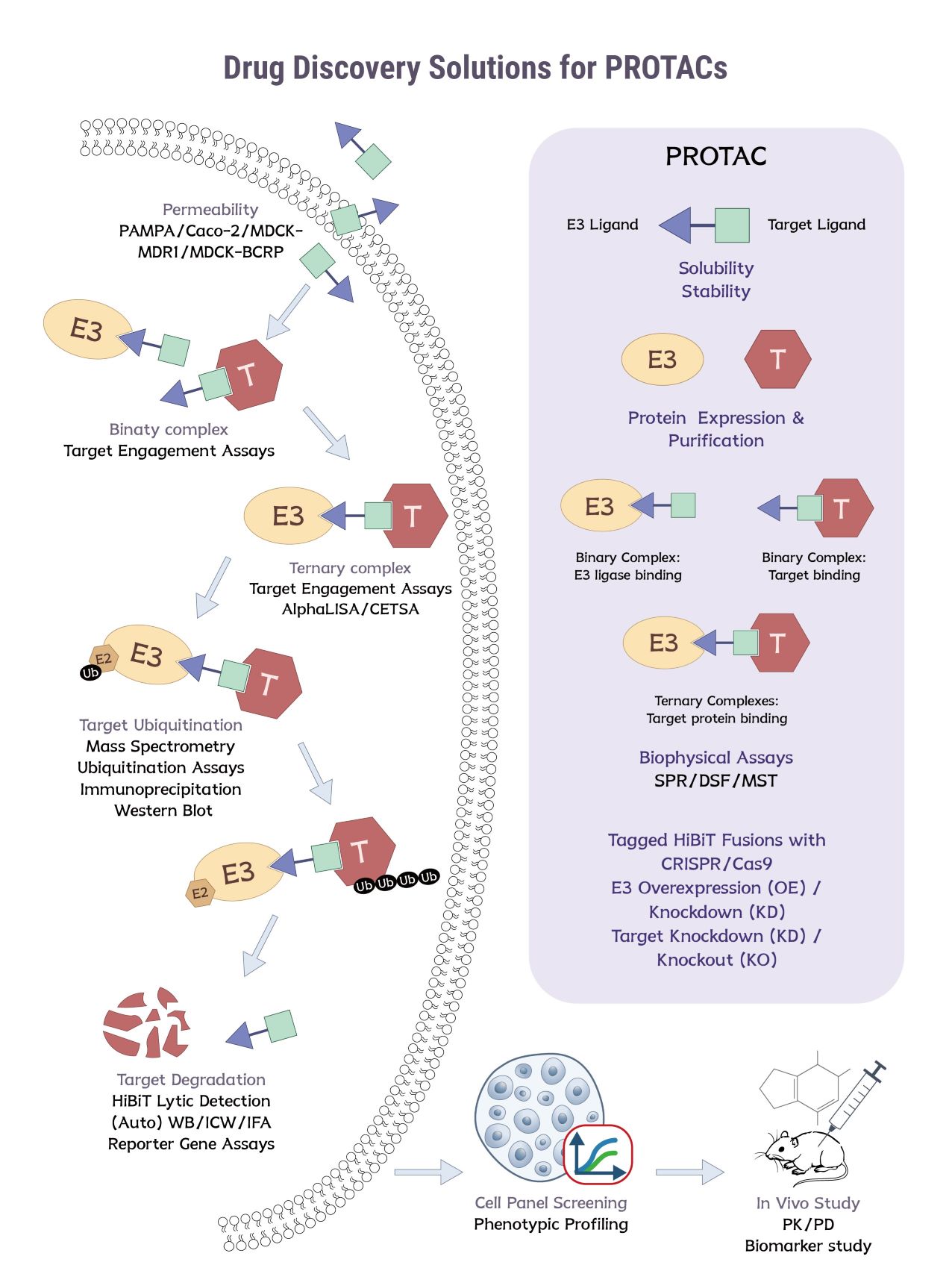Protein analysis plays a central role in advancing biomedical research, driving breakthroughs in understanding cellular functions and developing therapies. From decoding complex diseases to improving drug discovery, accurate protein detection and analysis are the foundation of modern life sciences. This blog explores how reliable protein analysis enables better research outcomes across fields and discusses cutting-edge methods and technologies shaping this critical area of study.
Table of contents:
How Accurate Protein Analysis Drives Breakthroughs in Biomedical Studies
The Top Protein Analysis Methods for Reliable and Reproducible Results
Why Comprehensive Protein Detection is Key to Cellular Research
Exploring Cutting-Edge Technologies in Protein Analysis for Researchers
Protein analysis is essential for understanding the biological processes of life at a molecular level. Proteins are involved in nearly every cell function, regulating metabolism, signaling pathways, immune responses, and more. In the context of biomedical research, precise protein detection provides invaluable insights that lead to advancements in diagnosis and treatment. For example, protein degradation assays are instrumental in developing targeted therapies for diseases such as cancer and neurodegenerative disorders. These assays evaluate the degradation of proteins linked to diseases, shedding light on potential therapeutic targets and pathways.With innovations like targeted protein degradation (TPD), researchers now have the ability to eliminate disease-causing proteins selectively, opening possibilities for tackling previously undruggable targets. Companies like ICE Bioscience offer advanced services, including ternary complex formation assays and NanoBRET protein engagement technologies, that empower scientists to validate and optimize therapeutic candidates. These approaches underpin modern medicine, enabling discoveries that benefit public health and pharmacological innovation.

Achieving reliable results in protein analysis depends on selecting techniques tailored to research objectives, ranging from traditional approaches to advanced assays supported by cutting-edge technologies. Common methods include protein detection assays like Western Blot (WB), ELISA, and flow cytometry, which are valued for their sensitivity, adaptability, and reproducibility. Ternary complex formation assays, such as NanoBRET and AlphaLISA, are widely used in TPD studies to examine interactions between proteins, ligands, and molecular compounds, aiding in screening degrader molecules and validating mechanisms of action. Protein degradation kinetics, using techniques like cycloheximide inhibition assays and doxycycline-inducible systems, measure protein half-life and stability in cellular environments, offering insights critical to drug development. These innovative methods emphasize the importance of reproducibility and precision in protein analysis, with organizations like ICE Bioscience enhancing research by integrating advanced platforms like quantitative proteomics and ubiquitination assays to refine data accuracy.
Accurate protein detection is critical to advancing knowledge about cell behavior and interactions. Proteins serve as biomarkers and functional indicators, offering a gateway to understanding cellular mechanisms in healthy and diseased states. Comprehensive methods enable detailed investigations into protein localization, turnover, and interactions—factors that play a significant role in how cells operate.The value of comprehensive protein detection extends to its applications in targeted therapies. Understanding protein degradation through sophisticated assays allows researchers to selectively target pathways, leading to the development of therapies with greater specificity and fewer off-target effects. For instance, ICE Bioscience's degradation pathway testing distinguishes whether a drug acts via proteasome or lysosomal mechanisms. This distinction adds value to therapeutic development by improving specificity and reducing unintended impacts.Further, tools like proximity-based cellular assays (NanoBiT, TR-FRET, etc.) and immune functional assays enable real-time monitoring of cellular activity, ensuring consistency in results. By delivering actionable data, comprehensive protein analysis contributes to precision medicine, offering hope for addressing complex diseases like cancer and autoimmune conditions.
Technological advancements have transformed protein research, offering researchers unparalleled capabilities in detection, analysis, and validation. At the forefront of innovation are platforms and services that combine scientific expertise with state-of-the-art tools. Revolutionary technologies such as HiBiT and NanoLuc systems enable fast and accurate fusion-protein expression, supporting high-throughput screening and rapid validation in transient and viral transduction settings. Quantitative proteomics offer in-depth analysis of protein expression levels, modifications, and interactions, facilitating biomarker discovery and identification of druggable targets. AI-driven assay development platforms automate data analysis, streamlining workflows, reducing manual errors, and expediting decision-making. By partnering with service providers like ICE Bioscience, laboratories can access these cutting-edge technologies, including ubiquitination assays and quantitative proteomics, tailored to meet the needs of demanding scientific disciplines and elevate research quality and reproducibility.
Protein analysis represents one of the most dynamic areas in life sciences, pivotal for understanding the molecular intricacies of health and disease. From standard immunoassays to groundbreaking innovations in targeted protein degradation, these techniques provide the foundation for groundbreaking discoveries. Partnering with experienced providers such as ICE Bioscience enables labs to not only access cutting-edge solutions but also refine their workflows to improve efficiency and accuracy.Whether you’re exploring emerging techniques or refining established methods, investing in advanced protein analysis tools can empower your research to deliver better outcomes. Harnessing these technologies ensures that your lab contributes to the next wave of medical breakthroughs, delivering benefits that resonate across industries and communities.
2026-02-04
2026-02-04
2026-02-04
2026-02-04
We value your inquiries and are here to provide you with tailored solutions for your drug discovery and development needs. Whether you have questions, require more information, or are interested in discussing potential collaborations, our team of experts is just a message away.
Feel free to reach out to us.